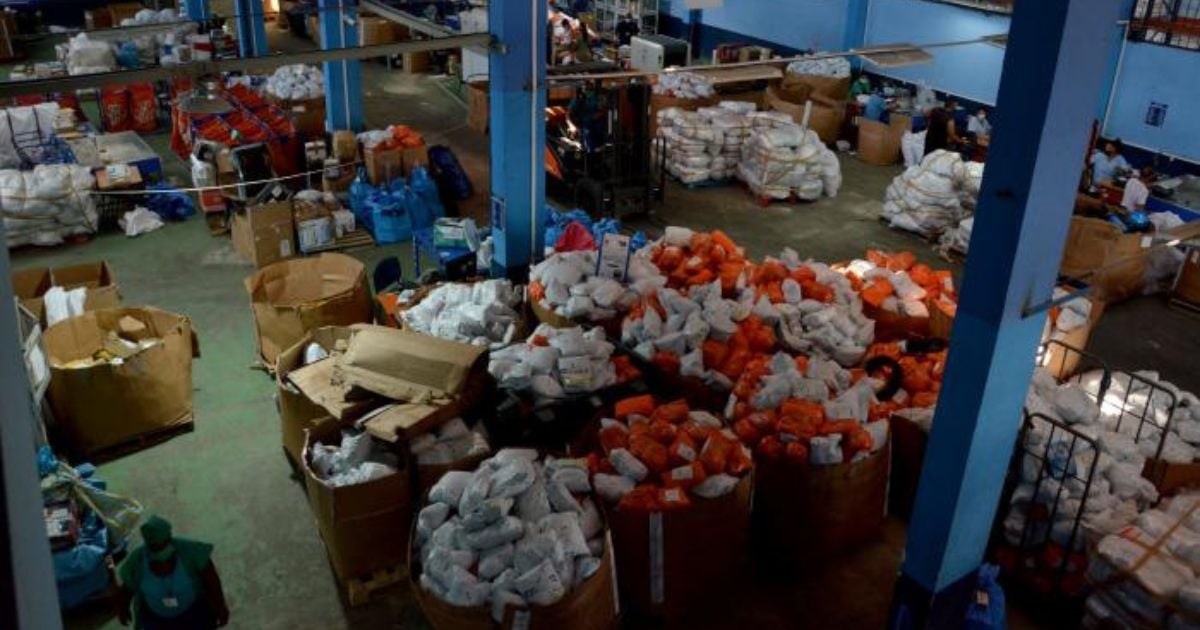The Cuban government, through the voice of Pablo Cuéllar González, director of Freight at the Ministry of Transportation (Mitrans), has claimed significant enhancements in the services of non-commercial transit companies. According to officials, this improvement is evident in the reduction of customer complaints, which decreased from hundreds per month to merely 72 throughout 2024, as reported by the state-run newspaper Granma.
Companies like Transcargo, which in 2022 were overwhelmed with hundreds of parcels delayed beyond the stipulated 30-day period, have ramped up their operations. They now handle between 140 and 150 containers monthly compared to the previous 30 or 40. Jorge Lara Téllez, the general director of Transcargo, attributes this progress to organizational efforts and collaboration with small and medium-sized enterprises (SMEs) that assist in warehouse management.
Another key development is the use of technology to streamline processes. The Customs at the Port of Havana claims that their automatic system can dispatch containers in just one minute. Despite these advancements, Adonis Peacok Torres, the deputy head of Customs, acknowledged that staff training in areas like security remains a challenge to effectively combat crimes such as drug trafficking.
Meanwhile, Aerovaradero and the International Mail and Exchange Company, part of Correos de Cuba, have also reported improvements in delivery speed and customer satisfaction. Aerovaradero highlighted revenues exceeding $15 million in 2024, tripling their initial forecast. Correos de Cuba announced plans to install an automated plant in the first quarter of 2025, capable of processing up to 8,000 packages per hour.
Despite these official reports highlighting reduced complaints and logistical advancements, the public continues to report delays and, notably, theft of package contents, which undermines the regime's official narrative. Recently, a resident from the municipality of Los Arabos in Matanzas province reported a case of package theft and tampering after picking it up from a Correos de Cuba office. The package, sent from Mexico by her husband on a mission there, appeared to have been tampered with despite being closed.
In October, Mayelin Rodríguez Roche, residing in Camagüey, shared on Facebook her experience of discovering that over eight kilograms of a 20-kilogram package sent from Italy were missing after passing through Havana Customs and her local Correos office.
Also in October, Idisleidys Sosa, a Cuban living in Spain, reported that a cellphone she sent to her uncle in Cuba was replaced with a box filled with screws and chicken bouillon packets. While the glasses she sent remained intact, the cellphone box was tampered with, leaving her frustrated and outraged.
Concerns about Package Delivery in Cuba
What improvements have been made in Cuba's package delivery services?
Cuban authorities report that non-commercial transit companies have improved their services, reducing customer complaints significantly and increasing container processing capacity. This includes increased operations by companies like Transcargo and the adoption of automated systems at the Port of Havana.
What challenges still exist in Cuba's package delivery system?
Despite reported improvements, challenges remain, such as the need for better staff training in security to combat issues like drug trafficking. Additionally, public reports of package delays and theft continue to undermine official claims of progress.
How are technological advancements impacting package delivery in Cuba?
Technological advancements, such as automated systems at the Port of Havana, have significantly sped up package processing times, with claims of containers being dispatched in just a minute. This is part of a broader effort to improve logistical efficiency.
